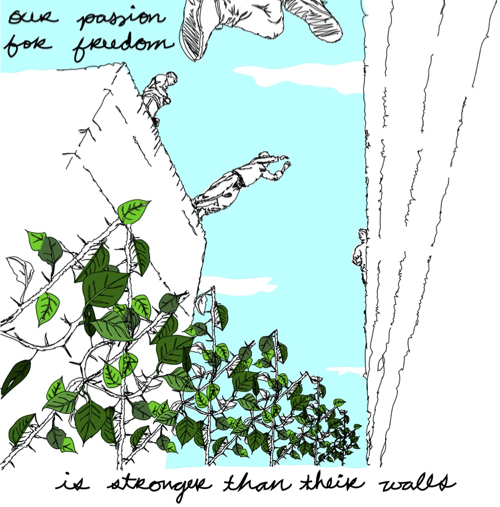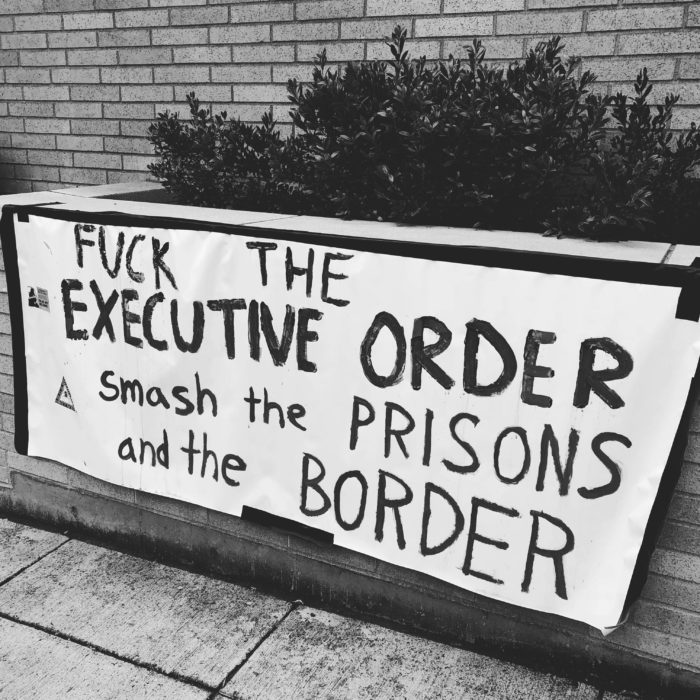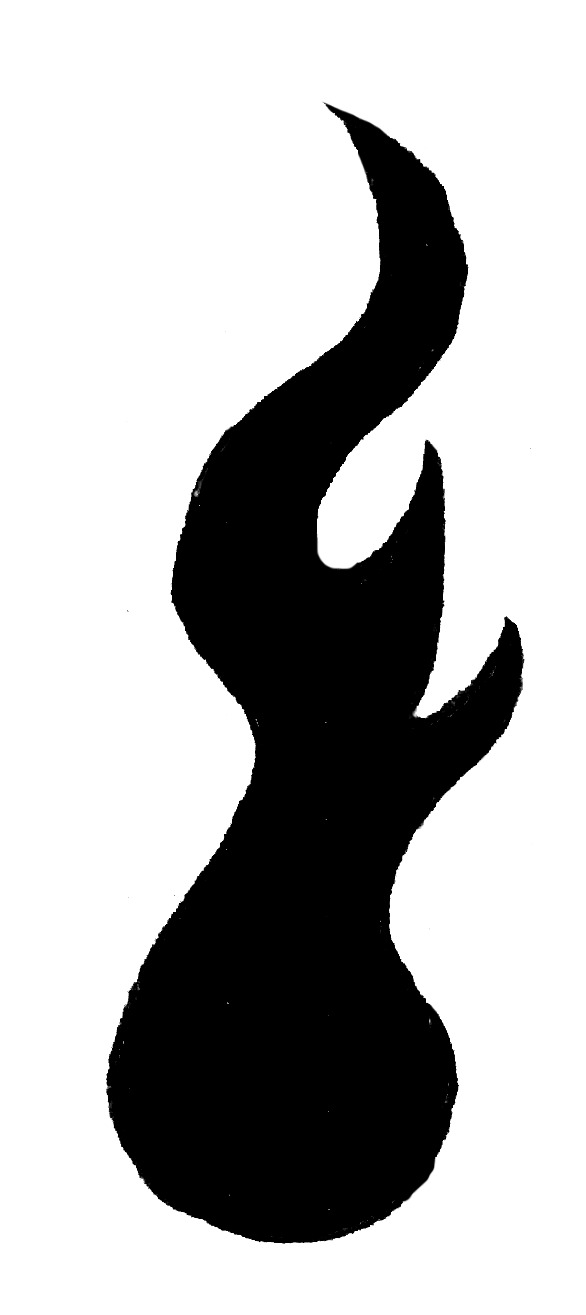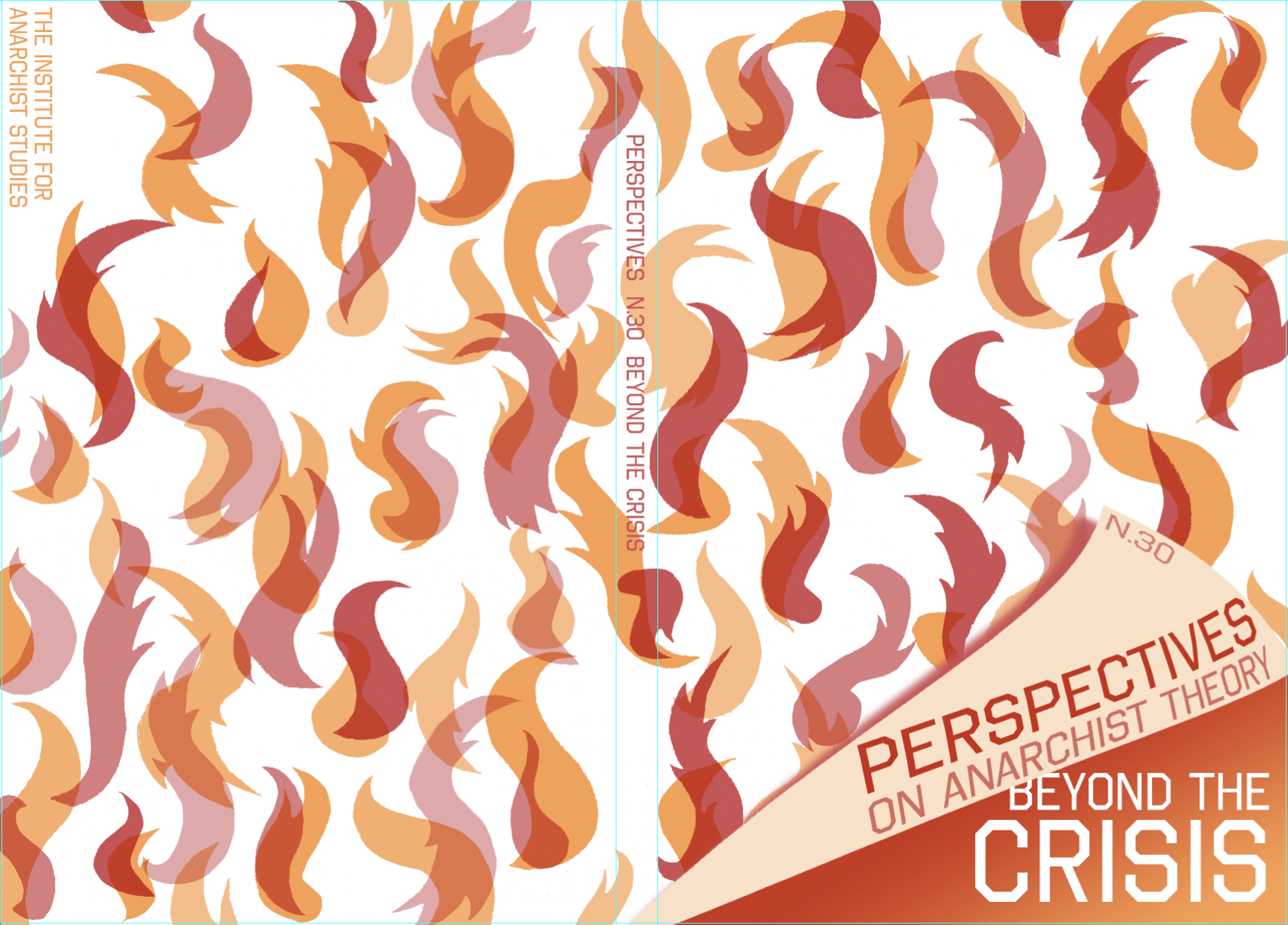by The Perspectives Editorial Collective
THE WORLD IS ON FIRE.
It has been, for quite some time. If you’ve done any organizing, you’ve felt it—that sense of racing about, extinguishing this flare up or that, spending precious energy and resources surviving the immediate emergency and hoping the future will somehow save itself. If you’ve watched the news, you’ve felt it—disbelief combined with the raw hilarity of the media circus; just when it seems things couldn’t get worse, or more frightening, or more absurd, they do. If you’ve ever worked three jobs to keep your family afloat, you’ve felt it. If you’ve listened to climate scientists, or survived a hurricane, or watched helplessly as an unseasonable forest fire tore through a landscape you loved, you’ve felt it—the rising certainty that we have waited too long, that global temperatures are edging toward tipping points from which we will never return. We are burning.
Western culture has been historically preoccupied with apocalypse, from Judeo-Christian threats of the End Times to doomsday cults. Every generation has imagined themselves living at the edge of history. The anticipation and dread permeate aspects of our puritanical, militaristic, consumeristic culture, yet they offer little in the way of seeing beyond times of crisis. In fact, it seems ever clearer that capitalism thrives on crisis—that capitalism is crisis. At this point, could we tell the difference between the “the end is near” and “the end is here?”
What if the apocalypse has already arrived, having crept up incrementally while we were waiting for a big announcement? What if this is what it looks like to be in the thick of things, the “interesting times” of the proverbial curse? Why are we not in the streets, then, in our thousands and our millions? Why haven’t we taken over our workplaces and neighborhoods and said, Enough! Are we simply resigned, cynical, nihilistic? Overwhelmed and preoccupied with financial survival? Distracted? Do we even think things can ever radically change for the better, much less in time?

When the Perspectives editorial collective conceived of the “Beyond the Crisis” theme—we admit it, we were feeling pretty apocalyptic. When we started receiving contributions, we were caught off guard by what seemed like a discrepancy between what we were imagining in our projected issue and the work that was submitted. But we soon realized that the writers we were hearing from were indeed answering us—they just responded more strongly to certain parts of our call than others. Namely, they weren’t speaking to the post-apocalyptic imaginary and its radical ruptures. They weren’t caught up in the same sense of immediacy and lost opportunities. They were exploring ways to proactively navigate sustained, long-game solutions. They wanted to talk about how they have been building a more equitable collective capacity to survive and thrive here, now, where we are—and in the future into which we’re heading. That’s an interesting thing to observe, and perhaps a partial answer to our curiosity about the current perspectives of anarchist thinkers and organizers.
In this issue, people share the hopes and failures that lead us past the present moment, transcending the mad, reactive hopping from hotspot to hotspot, and instead offer lessons in what German autonomous anti-fascists refer to as “commitment and continuity,” or long-term paths out of the fire and into something sustainable, something better. Altogether, the existing experiments discussed in this issue raise questions of how to relate to current structures and institutions in an interim or transitional way, while attempting to move toward more radical alternatives. These institutions are untenable on their own for a variety of reasons, and we must have our own alternative practices, relationships, and organizational forms ready to go as we move forward.
Essays in this issue touch on subjects such as linking children’s playthings to utopianism as a way of envisioning a worthwhile future; critically engaging with the traditions of mutual aid, worker co-ops, and municipal governance as ways to counteract the depredations of neoliberal austerity as we advance the socialist project; offering models of self-empowered community-based health alternatives; reflections on an environmental campaign in Ireland exploring lessons about long-term strategy, maintaining sustainable activist communities, and proactive envisioning; and a discussion of several decades of street-level anti-fascist organizing in Germany, which teaches us how to stay self-critical and engaged. These essays and others, plus book reviews related to strategy and organizing, beautiful art by the Justseeds Artists’ Cooperative, and current IAS announcements are what you hold in your hands. We are grateful to Roger Peet for curating the art, Josh MacPhee for his striking cover design, Lantz Arroyo of Radix Media for layout, and Charles Overbeck at Eberhardt Press for printing. We hope that this issue will offer useful reminders of the long-term continuity of our collective projects—yours and ours. We need to carry the fire together, not be consumed by it.

We don’t yet know what strategies are going to work, or what life forms and social forms will survive the transition from past to future. We don’t know what culture and society will look like—which ingredients it might revitalize from ancestral knowledge systems, and which innovations it might incorporate from emergent social contexts and experiences. There will be transformation. There will be evolution—and revolution. There will continue to be change. It’s possible the current political crisis epitomized by Trump will be resolved in a system self-correcting manner, with things going back to “normal,” through it’s also possible that the present turbulence will result in something qualitatively different. But even if the ruling class resolves the current political crisis in a system-affirming way, that very system is responsible for the ecological crisis, made most obvious in dire climate disruptions, which cannot be solved in the context of capitalism. The civilization that brought us to this point of peril will not be the one that gets us through and out the other side to a society that is ecologically sustainable, equitable, and free. This society must radically change its social, political, and economic structures if humanity is to survive, much less thrive. If there is a new stabilization, it may not look like anything we’ve known before. So that’s an opportunity, a precious chance to implement alternatives long envisioned. Our enemies—whether disaster capitalists, xenophobic nationalistic demagogues, or technotopian accelerationists—never let a good crisis go to waste. Why should we?
The “Beyond the Crisis” issue of Perspectives is available from AK Press https://www.akpress.org/perspectivesonanarchisttheorymagazine.html


